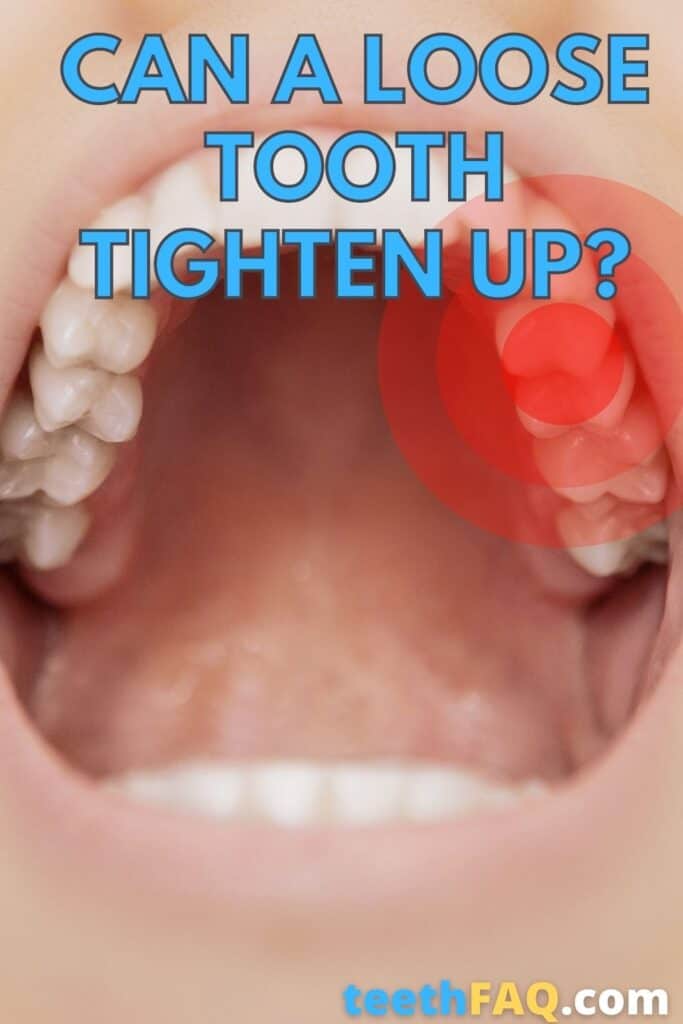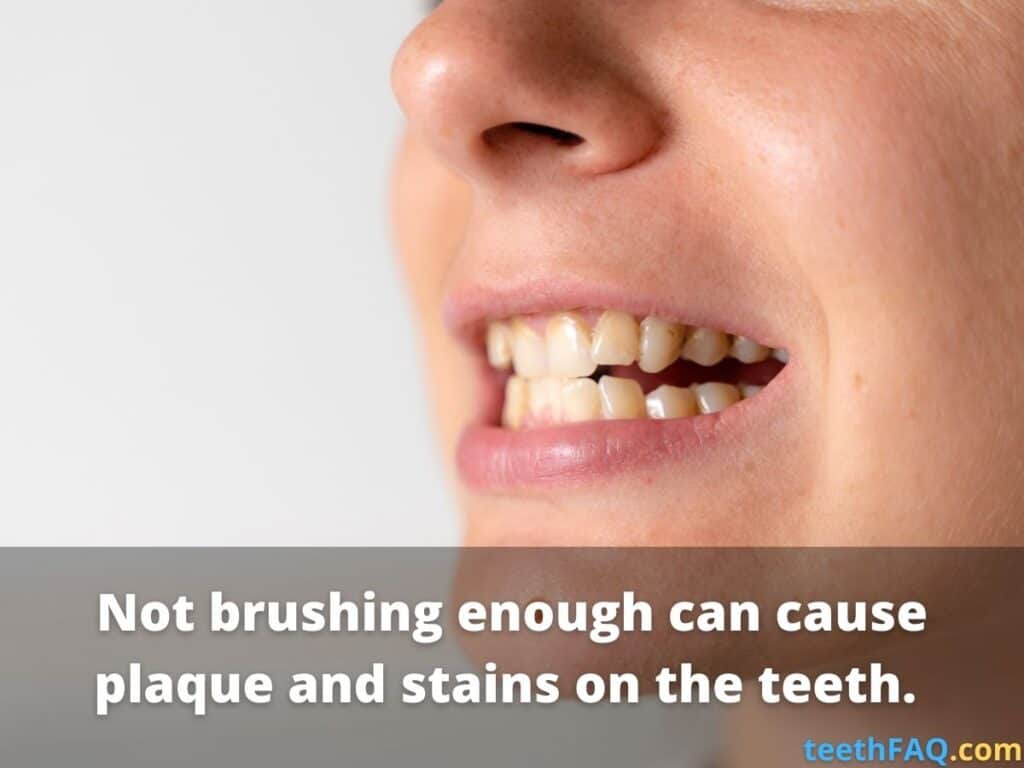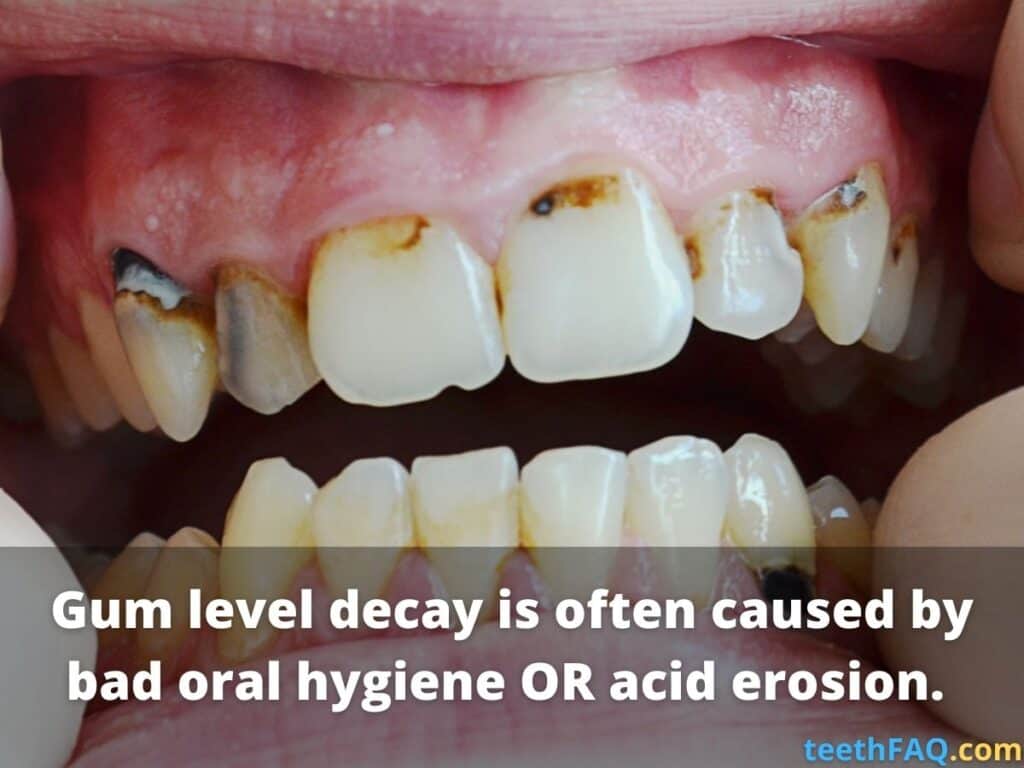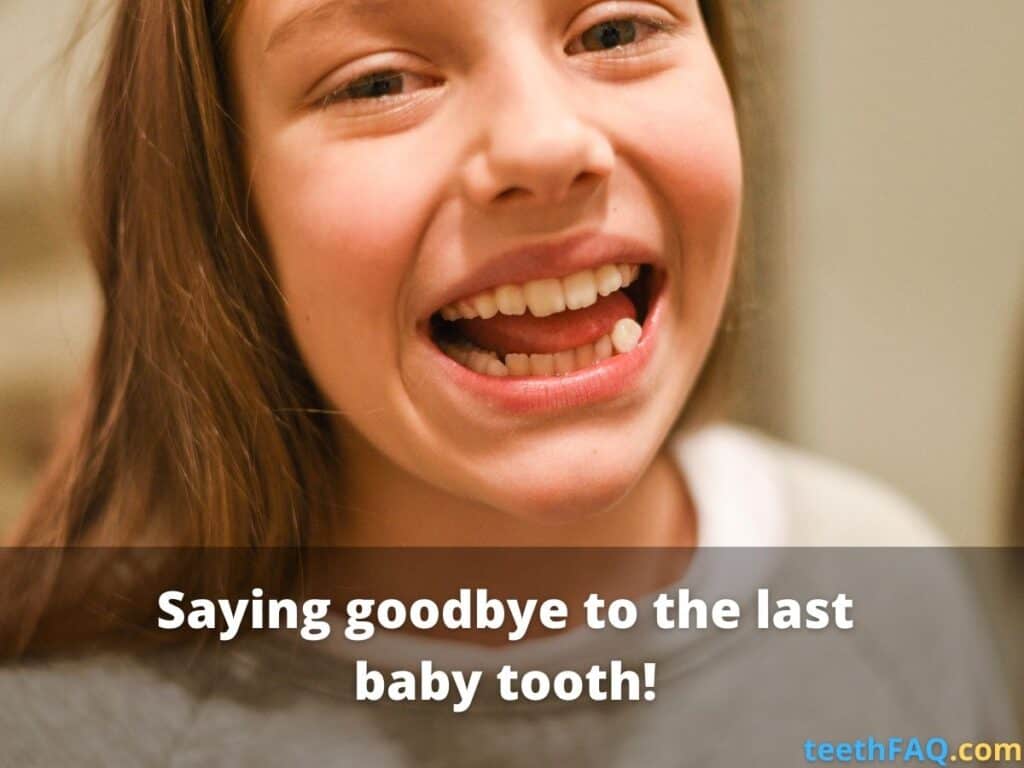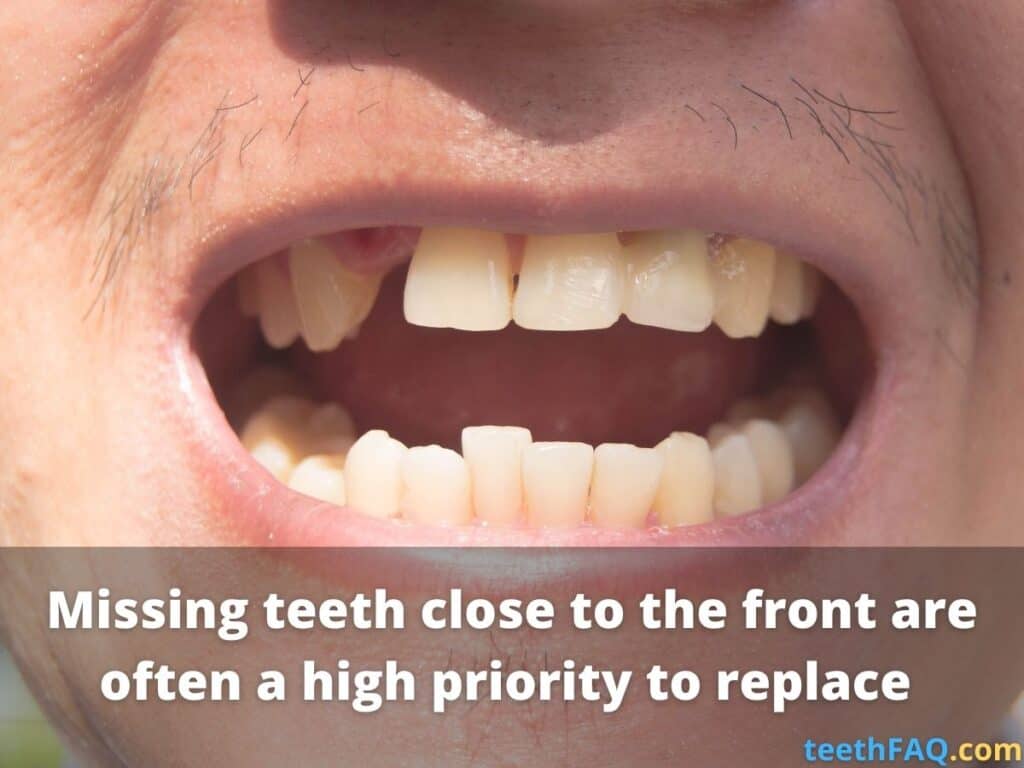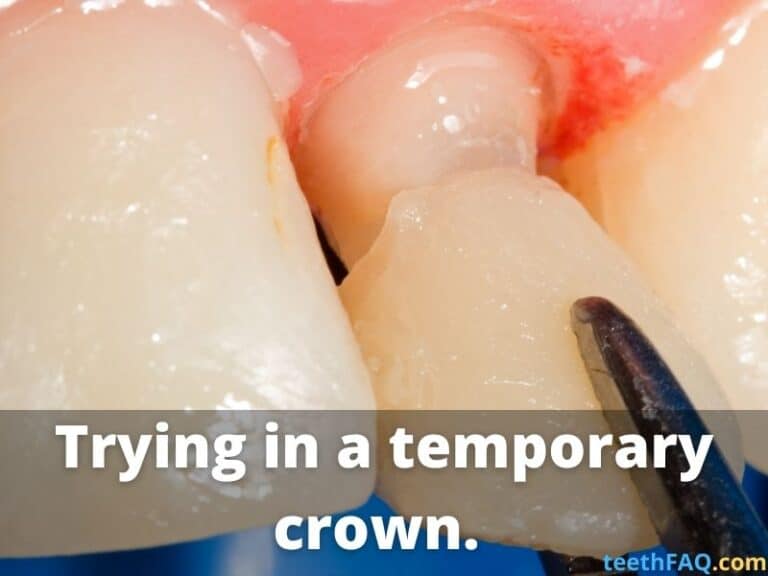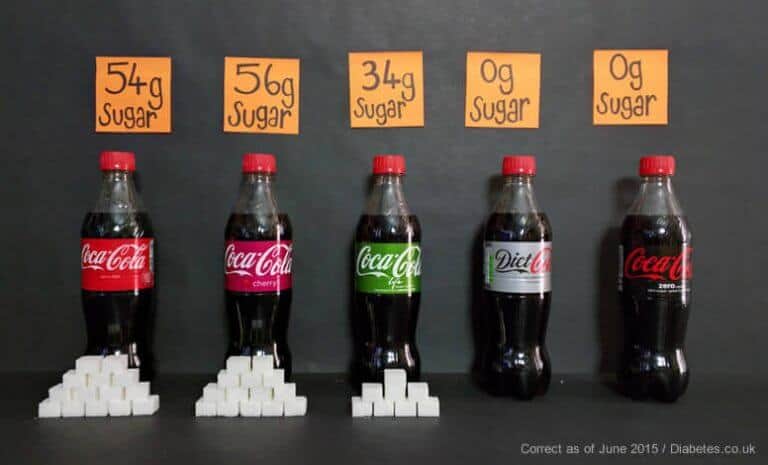Will A Loose Tooth Tighten Back Up?
Yes, a loose tooth can tighten back up. Eventually. But how much it tightens depends on the extent of the injury, and also the cause.
Don’t worry about asking this question, it is not a silly question. As a busy dentist, I get asked this question all of the time.
Keep reading if you want to learn
- Can a tooth tighten back up?
- All the Causes of Loose Teeth
- How common is a loose permanent tooth caused by injury
- All about loose teeth caused by gum disease
- Loose tooth treatments (and how long they take to tighten the tooth back up),
Injury to your mouth or underlying gum disease are the main reasons for teeth becoming loose. But you can tighten back your loose tooth with proper care.
Will a Loose Tooth Tighten Back up?
For a child’s first set, having a loose baby tooth is normal. If you’re an adult and you have a loose front tooth or molar, then it needs to be fixed immediately.
Wiggly teeth as an adult need to be health with!
First things first, all teeth will wiggle a little.
Teeth are surrounded by skin before they sit in our jaws. It is a soft suspension that helps the tooth stay healthy. It is known as the periodontal ligament.
This allows teeth to wobble and wiggle a little – but not more than 1mm in any direction.
Anything more than that is abnormal tooth loosening, which required attention and maybe treatment,
The good news is, in most cases a loose tooth can tighten back up.
Causes of Loose Teeth Include
Adult teeth should last a lifetime. There is almost always a clear reason for a loose tooth as an adult.
These are the three most common causes of loose teeth
- Gum disease and Plaque
- Teeth Grinding
- Trauma and Injury
Loose Tooth Caused By Gum Disease
If you have had gingivitis or periodontal disease, then there may be some damage done to the bone surrounding the roots of your teeth. This could lead to them being loose.
Gum disease starts when plaque builds up between your teeth and around your gums.
Plaque builds up on the teeth and gums. Over time, this plaque hardens into tartar, which irritates the gums and leads to inflammation. Eventually, the gums pull away from the teeth, causing them to loosen. We need strong gums to keep our teeth from being wobbly.
In addition to loose teeth, we can end up with gum recession (receding gums), bad breath, and an increased risk of tooth decay or infections of the soft tissue (e.g. swollen gums).
Gum disease is often a genetic thing. If your parents have it, then you might be more likely to have a gum issue.
Wobbly teeth caused by gum disease can occur either when there is an acute flare-up of gum disease, or when there is significant damage due to serious long-term gum disease.
Brushing and flossing at home, cleaning at the dentist, and avoiding tobacco are the primary ways to slow down gum disease progression. For many people with periodontal disease, it’s probably best to get treated by a dentist.
Loose Tooth Caused By Teeth Grinding
Lots of us grind or clench our teeth at night. We can end up with sore jaw muscles, or even wear down the enamel making our teeth look short and worn out.
But another startling side effect of clenching or grinding your teeth at night is that you can temporarily make your teeth loose. If you find a way to reduce the pressure on the teeth, the looseness normally improves in a few weeks. More on what I recommend for my patients is below.
We grind our teeth more when we’re stressed, and less when we’re happy. More when we are tired, and less when we are well-rested.
There are also medications and airway considerations (like sleep apnoea, snoring, or tonsillitis) that can make us grind more. More grinding means more chance of temporarily loose or wobbly teeth.
If you hear the phrase “bruxism” or “bruxer” in your dental practice, this is just the formal name for tooth grinding.
Loose Tooth Caused By Injury
Sometimes teeth can get loose after an injury or knock. From a headbutt to a trip – big impacts can make teeth loose.
I ask my patients to make an appointment ASAP if they have had trauma that has damaged their teeth. There are things a dentist can do to stabilize and allow the teeth to grow firmer and return to health.
Sometimes a tooth is a little wobbly after biting on a fork or an unexpected hard object. Think of this as a bruise – it should go away quickly and the tooth should become firm again within a day. Otherwise, it’s time for a visit to the dental chair.
Loose Tooth Treatments
Dental Appliances / Splint – (Usually takes few weeks to see a difference on a loose tooth)
When people are grinding of clenching heavily, sometimes they get loose teeth. A night guard or splint is something I can make to help my patients reduce the pressure on their teeth.
A night guard is something that your dentist can make for you to help reduce the pressure on your teeth. This can help prevent teeth from getting loose. It will feel like a mouthguard and you will wear it at bedtime.
Note that wearing a dental night guard is not a cure for grinding or clenching, it just protects the teeth from the extreme force.
Tooth Splinting (Helps After A Few Weeks)
If teeth are very wobbly (usually gum disease or trauma causes very loose teeth) a dentist can splint the teeth together. This makes them stronger as they support each other.
When your teeth are splinted together it is comfortable and smooth but can take a while to get used to. The tongue will play with the splint for a while!
Splinting is particularly useful when a loose tooth is making it difficult to eat.
I make splints similar to a fixed retainer that you would have after braces. A thin wire behind the teeth (hidden from view) held in place with some blobs of dental glue.
Gum Disease Treatments (1-2 months)
If you have teeth that are wobbly due to gum disease, you can have gum treatments and deep cleanings that can make the gums healthier. In many cases, they will grip the tooth much better.
Periodontal treatments start simple and include training on improved hygiene habits with regard to oral care. Oral hygiene is the first tool in our kit that we use to prevent gum problems. Brushing, flossing, and even salt water rinses are common.
They progress into cleans deep cleans (sometimes with anesthetic) and some topical medicines.
The more advanced periodontal treatments involve minor gum surgery (which sounds crazy but is actually not too intense). Gum disease typically only happens to adults, so a serious gum treatment on an adult tooth is normal – on a baby tooth it would be alarming.
Uncontrolled periodontal disease can result in tooth loss. If this ends up being a front tooth – it creates a pretty big problem!
Loose teeth shoudl be at elast midlly concerning. One other common cause of loose teeth that is actually normal is loose teeth during Invisalign or braces. It is a sign that the teeth are on their way to the new position! Find out more about loose teeth during Invisalign.
What Can I Do To Prevent Loose Teeth?
Preventing loose teeth starts with regular dental visits. Brushing twice a day removes food particles and debris from your teeth and prevents cavities. Flossing regularly keeps plaque under control. And seeing us once a year means we catch problems early so they don’t turn into bigger issues later.
Smoking cessation, improved diet, and medications are all treatment possibilities for periodontal diseases. Waterpik irrigation can be helpful in reducing the bacterial load in the mouth.

